Joe Biden: The ideal foil to the president
- Published
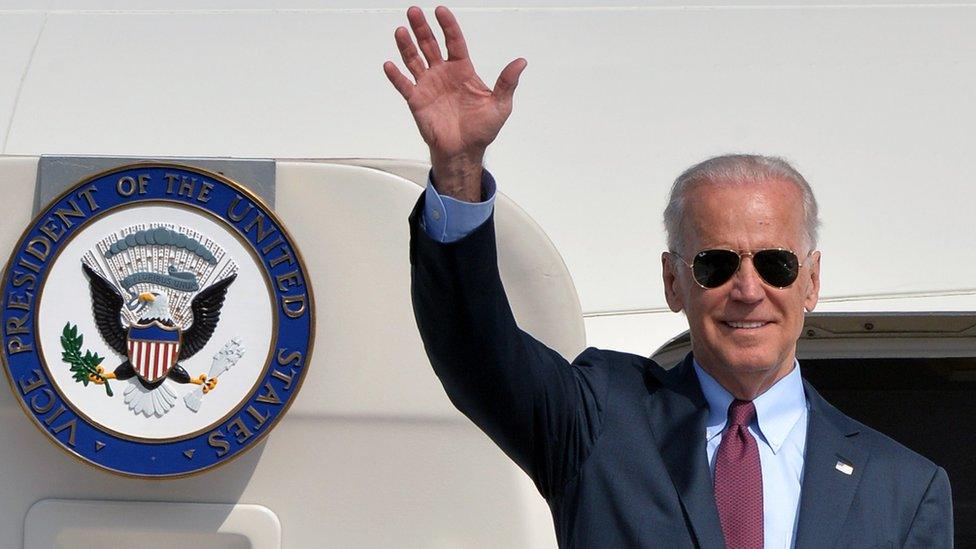
Mr Biden was elected US senator at age 29 - before the constitutionally mandated minimum age of 30
Joseph Biden's foreign policy expertise and blue-collar appeal made him an astute addition to Barack Obama's ticket in 2008.
And in the years since, he has been a trusted adviser - and occasional pain in the neck - to the president.
Now he has passed on a final run for the presidency himself.
A vice-president's first job is to get the ticket elected. And Mr Biden was chosen for the 2008 Democratic ticket to fill two gaps in Mr Obama's political repertoire.
Mr Biden, a veteran Delaware senator, was selected for his supposed folksy appeal to white working-class and middle-class voters.
And as a long-standing senior member of the Senate foreign relations committee, he could defend the ticket against Republican criticism that Mr Obama was ill-equipped for the role of commander-in-chief.
The two men complement each other in several other ways. While Mr Obama comes across as cool and collected, Mr Biden can be lively and combative in his attacks on opponents.
Mr Biden also relishes the old-fashioned politics of glad-handing and party networking that Mr Obama appears to dislike.
But Mr Biden has also earned a reputation as a loose-lipped gaffe machine, offering fodder to the conservative media, distracting the cable news nets and knocking the White House off message.
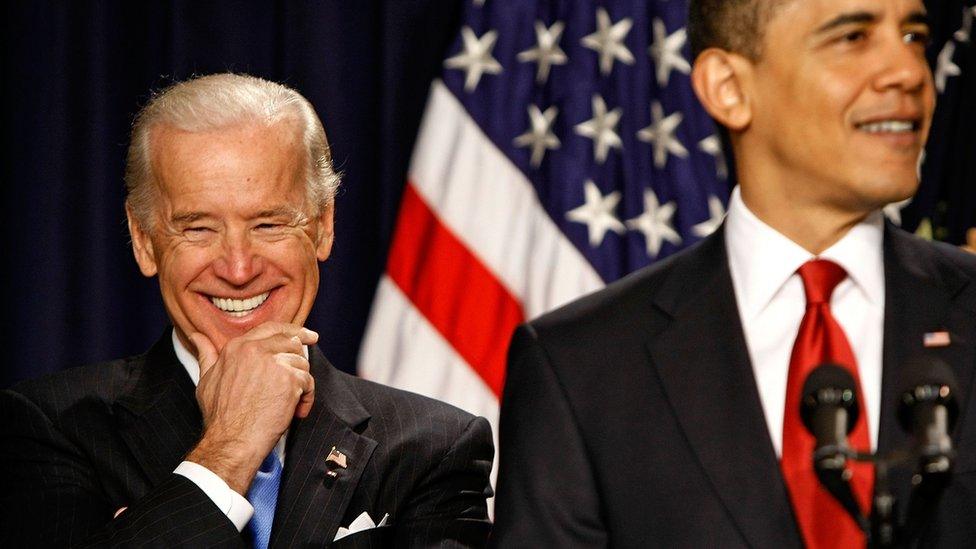
"Scranton Joe" can be charming and folksy on the stump - but also long winded
Triumph and tragedy
Joseph Robinette Biden Jr was born in 1942 in Scranton, Pennsylvania, one of four children in an Irish-Catholic family. In American political code, hailing from that blue-collar town gives a politician credibility with middle America, and not least with the news media.
The family later moved to the small north-east state of Delaware, where Mr Biden attended the University of Delaware. He went to law school at Syracuse University in New York state.
He was elected to the US Senate in 1972 at age 29, and took office weeks later aged 30, the minimum age to enter the Senate.
But before he could take office, his family was devastated by tragedy. His wife and infant daughter were killed in a winter car accident.
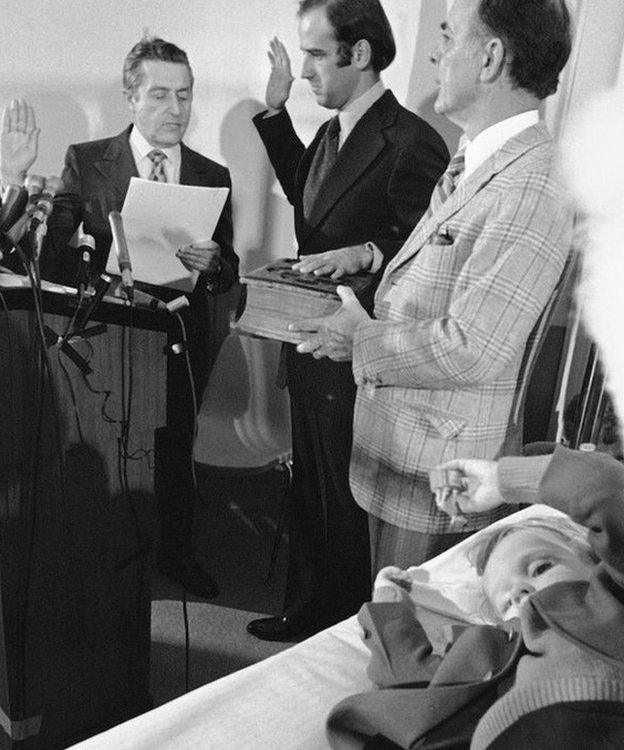
Mr Biden took his oath of office as senator in 1973 by Beau's hospital bed
At a recent 9/11 commemoration, Mr Biden spoke of his pain.
"No matter how many anniversaries you experience," he said, "for at least an instant, the terror of that moment returns; the lingering echo of that phone call; that sense of total disbelief that envelops you, where you feel like you're being sucked into a black hole in the middle of your chest."
Mr Biden ran for the presidency in 1988 but withdrew after he admitted plagiarising a speech by the then leader of the British Labour Party, Neil Kinnock.
He spent the next years rising through the Senate ranks, ultimately becoming chairman of the judiciary and foreign relations committees.
In 2008 he ran again for president but failed to gain traction and dropped out in January.
Mr Biden's reputation as an able politician has been marred by his loose tongue.
In 2007, he described Barack Obama as "the first mainstream African-American who is articulate and bright and clean and a nice-looking guy".
Shortly after the pair took office in early 2009, Mr Biden said in a speech that no matter how hard he and Mr Obama tried to get things right, they still ran a 30% chance of fouling up.
Asked about the remark at a press conference, Mr Obama chuckled. "I don't remember exactly what Joe was referring to," he said. "Not surprisingly."
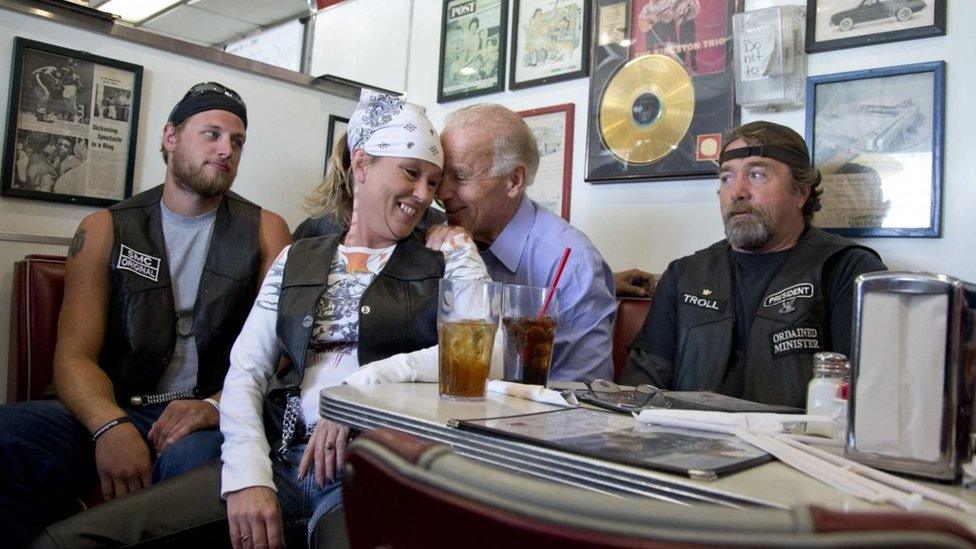
Biden has a common touch and a gift of schmooze that Obama, deservedly or not, is said to lack
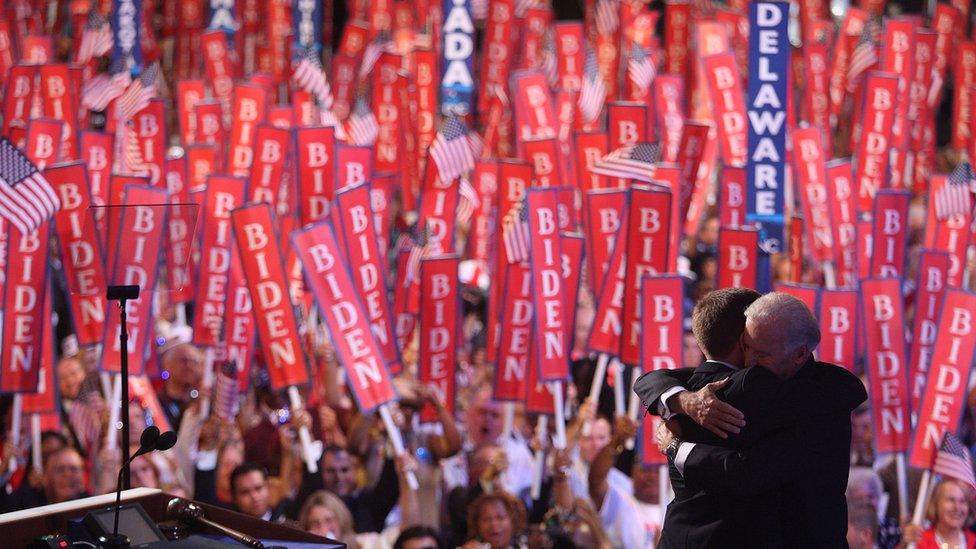
Mr Biden had a close relationship with his son, Beau, who died in 2015
In 2012 one of Mr Biden's off-message comments significantly altered White House policy.
Mr Biden told an interviewer that he supported same-sex marriage, though Mr Obama had said for years his own position was "evolving".
White House aides were said to be furious, but within days, Mr Obama said he had come around and now supported legalising same sex marriage. The political fall-out has been negligible.
"Thank you for being the best vice-president I could ever hope for," Mr Obama said at the Democratic Convention in September 2012.
In 2015, tragedy stuck the Biden family again when Mr Biden's son, Beau, died of brain cancer at age 46.
The death son of his son weighed on him heavily as he considered a third and final run for the presidency.
"The most relevant factor in my decision is whether my family and I have the emotional energy to run. The factor is, can I do it? The honest to God answer is I just don't know," he said in September.
After an extended period of speculation, the vice-president announced in a Rose Garden statement in October 2015 the "window had closed" on mounting a successful bid.
But true to form, Mr Biden said while he would "not be a candidate, I will not be a silent. I intend to speak out clearly and forcefully on where we stand as a party and where we need to go as a nation."